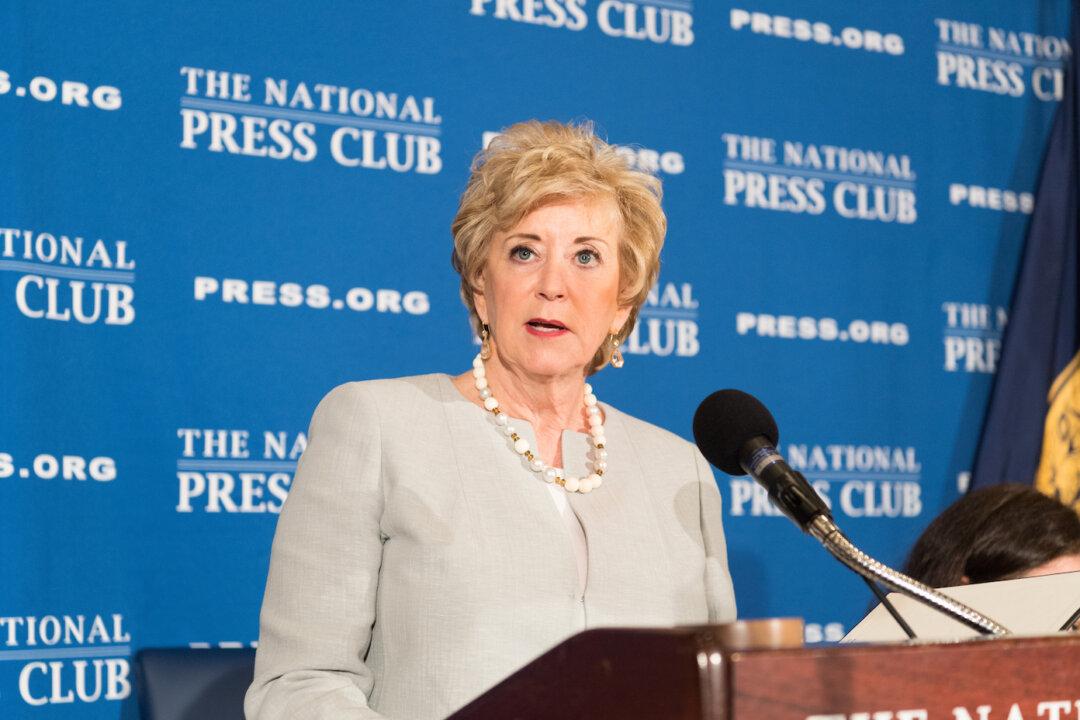WASHINGTON—Optimism within the nation’s small-business world has soared to the highest levels this year as a result of President Donald Trump’s leadership, said Small Business Administration (SBA) head Linda McMahon at a National Press Club luncheon on May 17.
Small businesses are already benefiting from recent tax cuts by expanding their businesses, investing in new equipment, and creating new jobs, according to McMahon.





